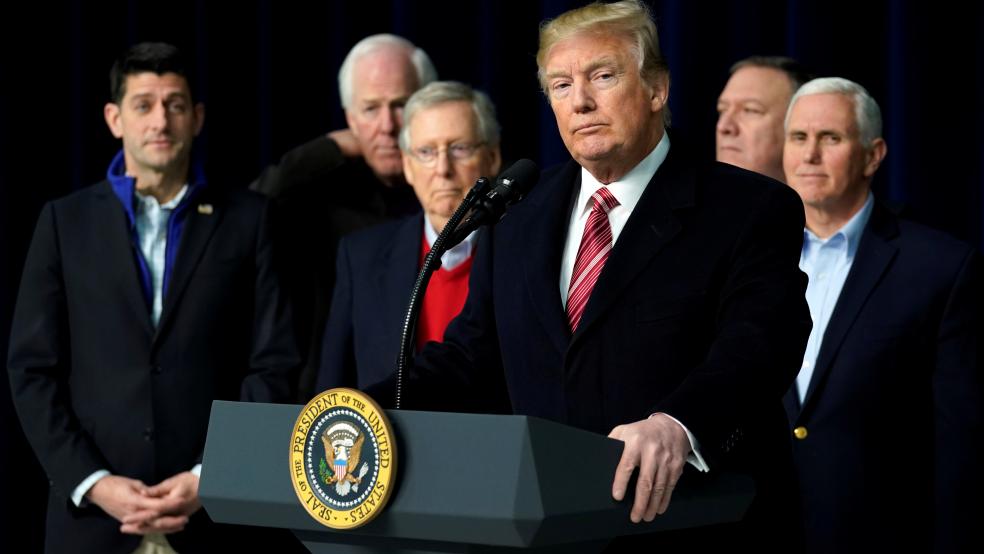Congressional Republicans may skip trying to pass a budget this year — a decision that represents “a blow to the party’s weakened fiscal hawks” and effectively eliminates the possibility of a party-line push to repeal Obamacare or revamp social programs, Politico reports.
Republican leaders discussed the possibility at Camp David last weekend, Politico says, with Senate Majority Leader Mitch McConnell arguing that, with a slim 51-vote majority, he might not be able to round up the votes to pass a fiscal 2019 budget let alone more controversial deficit-reducing cuts to welfare, Medicare or other safety net programs.
Congressional budget resolutions don’t actually enact spending or tax laws. They just set non-binding targets for federal spending and tax bills — and send political messages about the majority party’s fiscal priorities.
It’s become common in recent years for Congress to not pass a budget, but foregoing a budget this year would sharply curtail what GOP legislators can accomplish since it would preclude them from using the same reconciliation tool that allowed them to bypass the threat of a Democratic filibuster last year and push through a tax bill on party lines. It also would be a black eye for Republicans “who for years railed against Democrats when they avoided one of the most basic responsibilities of Congress,” Politico’s Rachael Bade and Sarah Ferris write.
Conservatives looking to cut government spending aren’t happy about the idea, which is being discussed at a time when congressional leaders are already considering a budget deal that would increase outlays by $200 billion over two years, and an $81 billion disaster relief package with no offsets — not to mention the idea of bringing back earmarks.
“It’s the latest sign of the decline of the party’s fiscal conservatives under Trump, who has shown little interest in cutting government spending and has begun to mold the party into his own image,” Bade and Ferris write.
House conservatives are likely to still try to pass a partisan “messaging budget” calling for mandatory spending cuts that reaches balance in 10 years, even if it can’t pass the Senate and doesn’t lead to a unified fiscal blueprint that allows for reconciliation.





